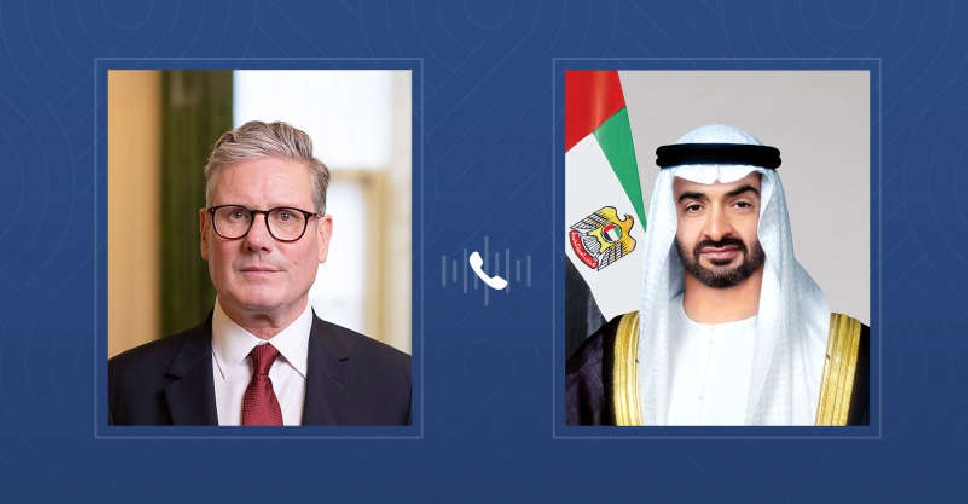UAE President Welcomes UK’s Intent to Recognize Palestinian Statehood: A Step Towards Stability in the Region
*By ARN News Staff
Wednesday, 30 July 2025 14:29*
In a significant diplomatic exchange, His Highness Sheikh Mohamed bin Zayed Al Nahyan, President of the United Arab Emirates (UAE), has expressed his support for UK Prime Minister Keir Starmer’s recent announcement regarding the recognition of Palestinian statehood. Prime Minister Starmer articulated this intention during his speech on Tuesday, indicating that the United Kingdom is prepared to officially recognize a Palestinian state during the upcoming session of the United Nations General Assembly in September.
This announcement marks a pivotal moment in international relations regarding the Israeli-Palestinian conflict, positioning the UK as the second Western nation after France to take such a step. The implications of this recognition could be profound, potentially leading to increased diplomatic pressures on Israel and fostering a new dialogue around peace in the region.
In their telephone conversation, both leaders underscored the urgency of progressing towards a just and comprehensive peace, which is increasingly being acknowledged as hinging on the viability of a two-state solution—a foundational aim of international diplomacy concerning the Israeli-Palestinian issue. Sheikh Mohamed emphasized that achieving a sustainable resolution requires an immediate ceasefire in the Gaza Strip, as well as the establishment of humanitarian corridors to ensure the unimpeded flow of aid to Palestinians, whose humanitarian situation has reached crisis proportions amidst ongoing conflict.
The significance of Sheikh Mohamed’s statements cannot be overstated. His call for a ceasefire reflects a broader concern within the Arab world and among international stakeholders regarding the deteriorating conditions in Gaza. Recent escalations have resulted in significant loss of life and infrastructure damage, where the urgency for humanitarian assistance has become a pressing matter of both ethical and political dimensions. The UAE’s stance provides a reminder of the region’s need for stability and the alleviation of human suffering as integral to any lasting peace initiative.
During their conversation, the two leaders not only addressed the Palestinian issue but also elaborated on the broader commitment of the UAE and the UK to bolster regional security and stability. This commitment is underscored by a shared vision of cooperation that seeks to foster peaceful coexistence and constructive dialogues amid ongoing regional challenges.
As the UAE continues to assert its role as a diplomatic leader in the Middle East, Sheikh Mohamed’s engagement with Prime Minister Starmer illustrates the UAE’s proactive approach in international affairs, especially regarding pivotal issues in the Arab world. The two sides deliberated on various strategies to enhance bilateral relations, exploring avenues for collaboration that extend beyond mere diplomatic exchanges to tangible cooperative efforts in various fields including trade, technology, security, and cultural exchanges.
The dialogue illustrates an evolving partnership that can have far-reaching effects—not only for the UAE and the UK but also for the entire region. By aligning their interests and political efforts, both nations may be better positioned to tackle the pressing geopolitical and humanitarian challenges that persist in the Middle Eastern landscape.
Amid these discussions, the backdrop of global politics plays a crucial role. As Western nations reassess their positions on the Israeli-Palestinian conflict, the timing of the UK’s proposed recognition aligns with a broader shift towards acknowledging the legitimacy of Palestinian aspirations for statehood. In this context, the UAE’s advocacy for immediate action on humanitarian grounds reflects a nuanced understanding of the intersection between diplomacy and humanitarian responsibilities.
In conclusion, the engagement between Sheikh Mohamed bin Zayed Al Nahyan and UK Prime Minister Keir Starmer signals a potentially transformative moment within international policy regarding the Palestinian statehood movement. As both leaders continue to champion cooperative efforts towards peace and regional stability, the international community will keenly observe the implications of these developments on the ongoing Israeli-Palestinian conflict.
Tags: #BusinessNews, #EconomyNews, #InternationalRelations, #UAE, #UK

